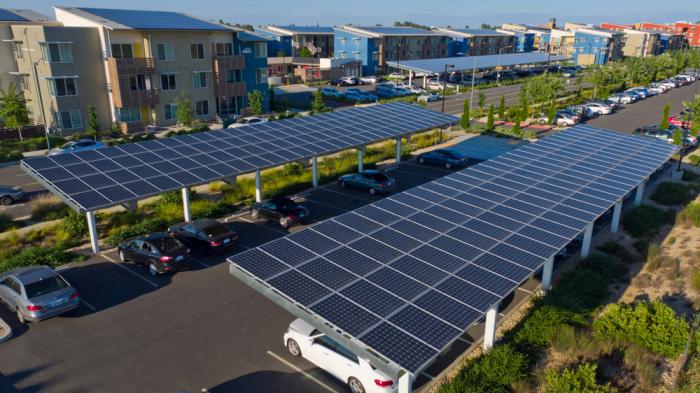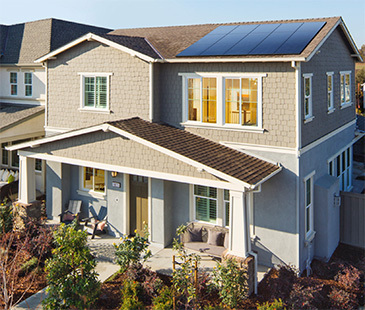
Electric vehicle sales hit an all-time high in Q2 of this year, signaling that the transition to an all-electric lifestyle is gaining speed. A study conducted by Cox Automotive showed that EV sales accounted for 5.6% of the total market, a large jump from the 2.7% market share at the same time last year. With rising gas prices and new policies to promote growth in the industry, experts predict these numbers to increase rapidly.
One industry that is acutely aware of the rising trend is the new homes market. Some of the nation’s top builders are jumping in feet first to develop all-electric communities. Part of this is due to California’s groundbreaking Title 24 energy code that requires all new homes be built with solar power and other sustainable features. Within the code are mandates for a percentage of multifamily parking areas to be designated as EV ready and all new homes to have 240-volt outlets installed, supporting electric vehicle chargers and solar batteries. Many of these requirements are recent as the Title 24 energy code continues to evolve to meet the Golden State’s ambitious climate goals.
In addition to the Title 24 energy code, a historic vote by the California Air Resources Board to phase out new gas-fueled vehicles recently passed in California. By 2026, the state plans for 35% of new vehicle sales to be electric and 68% by 2030. The policy is expected to catch on in other U.S. states and will be another amplifier for EV adoption.
These changes can be hard to keep up with, and consulting with SunPower’s new homes and multifamily solar professionals can help builders avoid costly pitfalls. The main key to success lies in integrating these clean energy technologies during the initial design phase of the new development. Working solar energy, solar batteries and EV chargers into the building’s foundational designs can save builders money and time, while simultaneously respecting the structure’s aesthetics.
For example, multifamily developers that prepare the necessary infrastructure for EV expansion not only meet code but also can take advantage of an additional revenue stream. Through smart EV charging and load management software, property owners can recuperate the charges at retail rates for EV charging (ranging on average from .25 to .40 cents per kilowatt hour). These meters can even be offset by applying credits acquired from the development’s solar generation. Between the rate charged to drivers and the solar credits applied to the EV accounts, property owners can generate profits and offer an attractive amenity for tenants.
The process is simpler for single-family new home communities, but the idea of incorporating EV charging into the design phase still stands true. Equipping homes with 240-volt outlets gives homeowners the freedom to use better, cleaner energy as they choose. Some of the nation’s top builders are leading the way on this adoption by building full communities equipped with clean energy amenities including solar panels, solar storage and EV chargers. In fact, The New Home Company has made SunPower’s clean energy solutions a standard feature in its Eureka Grove community in California. These homes include a SunPower Equinox® solar system, a 13 kWh SunVault® system and Wallbox Pulsar Plus EV charger.
With incentives for builders and homeowners alike in the new Inflation Reduction Act legislation, electrification trends are only expected to increase. The solar Investment Tax Credit has been restored to 30% and will be available for the next 10 years, along with a 30% tax credit for solar batteries. Qualified taxpayers can also take advantage of a 30% tax credit on EV chargers. And, there is a tax credit of up to $7,500 for qualified EV owners that meet specific requirements.
New home and multifamily developers that plan EV charging into their projects will set themselves ahead of the curve as EV sales increase. At SunPower, our clean energy pros are happy to help you get started on the right path with high-quality products and guidance that can help you cut project expenses. Contact us and together we’ll help change the way our world is powered.

